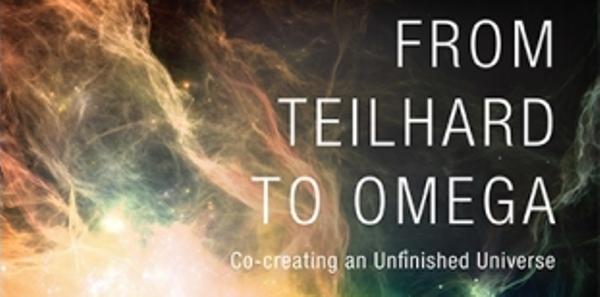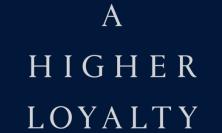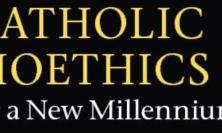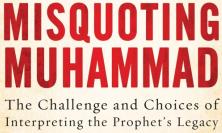In From Teilhard to Omega, the Franciscan theologian and scientist, Ilia Delio, has challenged thirteen experts on Pierre Teilhard de Chardin (1881-1955) to update for a new generation the writings of this French Jesuit and paleoanthropologist. Delio chose her experts carefully and so we are presented with a series of wonderful essays through which we can better understand Teilhard, but the real challenge of this book is to assimilate its words into one’s person and practice. This challenge is posed in the ‘Points to Ponder’ and ‘Questions for Discussion’ that close each essay – these will be as helpful to the individual reader as they will be to the discussion group leaders and participants that would do well to make use of this book. It is through these points and questions that the ideas of Teilhard get translated into one’s individual life rather than remaining as just words on paper.
The collection as a whole expounds Teilhard’s conviction, one based on his science, that the world in which we live is not something static. It has been, is, and for as long as it exists will be, changing. God is committed to that change for, as creator, He imparted it, sustains the world in change, and in Christ is its goal. Given the reality of evolution, we too must be committed to finding God in the Christocentric future towards which we are inevitably moving.
This process of moving forward is developed under four headings in the book: theology, philosophy, spirituality and science. These reflect the disciplines that Teilhard tried to integrate in his own life.
The first theologian, John Haught, sets the scene by explaining how evolutionary biology and astrophysics have dramatically changed our understanding of the relationship between God and the world. Kathy Duffy then shows how Wisdom leads creation back to God by nurturing, challenging, unifying and beautifying it, all as a continual transformation of a world full of God-given potential. Ilia Delio herself skilfully nulls the accusations of pantheism made about Teilhard when explaining ‘Christogenesis’ as the goal for creation. Denis Edwards draws a parallel between the methodologies of Teilhard and Karl Rahner, pointing out their common reliance on Duns Scotus, while showing how Rahner further developed Teilhard’s understanding of Christ’s resurrection. François Euvé ends this section by both locating humanity in the developing web of life and raising the question of our uniqueness.
For this line up of theologians alone I would have read the book, but the philosophers also make their mark. Patrick Byrne compares Teilhard with Bernard Lonergan, a rather opaque systematic theologian who could use Teilhard’s poetic sense. David Grumett describes how Teilhard’s metaphysics led him into ethics and political principles. Finally in this section, Donald Viney defends Teilhard against the criticisms made by the new atheists, particularly the prejudices of Peter Medawar – this essay in particular would provide provocative material for discussion groups.
The third section moves into a more personal realm, since it shows the place of spirituality and ethics in our new millennium in the light of Teilhard’s assertion of a developing humanity. Edward Vacek argues that morality should evolve since the nature of being human is substantially changing. This change in the ethical life is not to be feared since its evolving framework is directed by and moving towards Christ. What is needed of us is a loving cooperation with this growth. William Dinges and Ilia Delio together expand on this theme, saying that it implies a new spirituality which is deeply embodied in the secular world; while Ursula King urges that it will be Teilhard’s ‘zest for life’ that will provide the energy needed for the evolution of the Earth towards a greater unity. John Haughey concludes this section by finding that Teilhard’s nexus of developing matter and spirit implies the presence of the Holy Spirit.
In the final section, Ludovico Galleni tackles Teilhard’s whole science research programme. Its core was the unifying concept that evolution is moving towards complexity and consciousness. That movement also implies an increase in freedom within the cosmos.
Comprehensive as this updating of Teilhard’s thought is, I found one major theme only little mentioned: diminishment and death (p.163). The absolute necessity of these in any evolutionary picture had been turned by Teilhard into thoughts that many have found consoling as they face disasters or approach the later stages of life. Teilhard’s Mass on the World is a wonderful fusion of both growth and diminishment. Perhaps this collection of essays was becoming long enough, or a seemingly negative aspect was thought to detract from the hope-filled message of the book, and so the theme was downplayed. If so, one can sympathise with the editor’s decision if rather regret it.
So for those who last read Teilhard back when his writing first started coming into regular print, or for those who have heard of him but not read him, I thoroughly recommend this book. Be prepared to be challenged and changed by it. As it concludes (p.240), we are immersed in the adventure of evolution and as humanity are at ‘the growing tip of this evolutionary trend’. With the help of From Teilhard to Omega’s expert team we can (re-)discover the power of Christ’s love that will ‘lead us onward to a new reality.’
The reviewer, Christopher Corbally SJ, is a staff member of the Vatican Observatory, for which he has been vice-director, and a past president of the Institute on Religion in an Age of Science.






